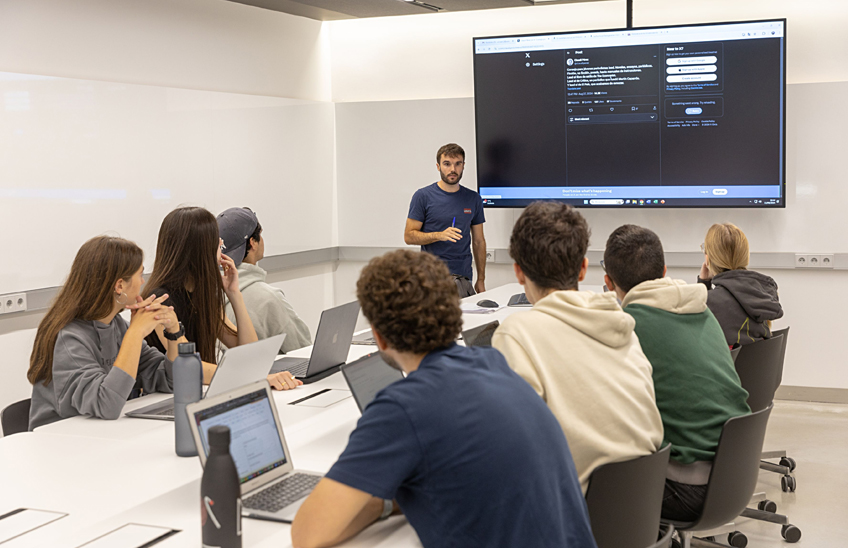New project to combat disinformation through argumentative verification techniques
He project AC/DC, formed by Maldita.es and the University, seeks to complement traditional fact-checking with critical analysis of arguments

PhotoCedit/
18 | 06 | 2025
The AC/DC project : Argument Checking vs Disinformation Content during Climate Emergencies and Crises was born after the experiences of the COVID-19 pandemic, the invasion of Ukraine or the DANA in Valencia, where the need to go further in the verification of disinformation content was identified.
He project , led by the Maldita.es Foundation and in which researchers from the University of Navarra participate, has been funded by the Calouste Gulbenkian Foundation through the European average and Information Fund (EMIF). Verifiers and researchers seek to develop and put to use test the concept of argument checking and its effectiveness in countering misinformation.
Argument checking is a novel technique, complementary to argument verification. data traditional, which appeals to the critical sense and logical reasoning of citizens. goal of this project is to measure its effectiveness among citizens and develop, through experimentation, a standardized methodology for use by news verification organizations and the media in general.
To this end, the Maldita.es Foundation will develop several prototypes of this subject argumentation with different formats applicable to disinformation narratives about climate change. Researchers at the University of Navarra will conduct a series of tests with citizens to determine which of the prototypes proves most effective in countering these narratives and whether incorporating argument checking into the verifications reinforces their effectiveness. With these results, this concept will be implemented in the internship regular journalist for Maldita.es.
Disinformation uses narratives capable of going beyond the data and the facts, creating a story that appeals to citizens in a way that mixes the data with an emotional component. This project seeks to create evidence to identify and create new methodological approaches that allow for improving the effectiveness of the fight against disinformation.
Ramón Salaverría , researcher main of the project At the School of Communication , he points out that "there are more and more attempts by disinformers to appeal to emotions and complex narratives are being created to confuse citizens. Media literacy is the tool more effective in combating disinformation and this project will allow us to test innovative techniques to create tools and processes that help citizens.”
The Calouste Gulbenkian Foundation through the European average and Information Fund (EMIF) has provided the project with €54,963.23 and will be executed in six months, until November 2025. On behalf of the University of Navarra, the team researcher It is made up of Ramón Salaverría ( researcher principal), Charo Sádaba, Bienvenido León, Xavier Bringué, Mari Carmen Erviti and Anais Sánchez Hualde .
This new project expands the line of research led by the University of Navarra around disinformation. In recent years, researchers from this team have led projects such as RRSSalud , which analyzed health disinformation on social media during the pandemic, MediaWise , which studied techniques to promote media literacy among people over 60 years of age, and especially the project IBERIFIER - Iberian Observatory of Digital Media , promoted by the European Commission and directed from the School of Communication.

